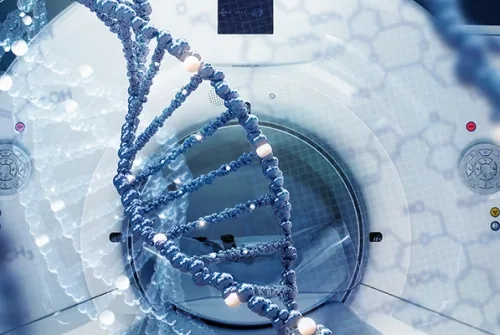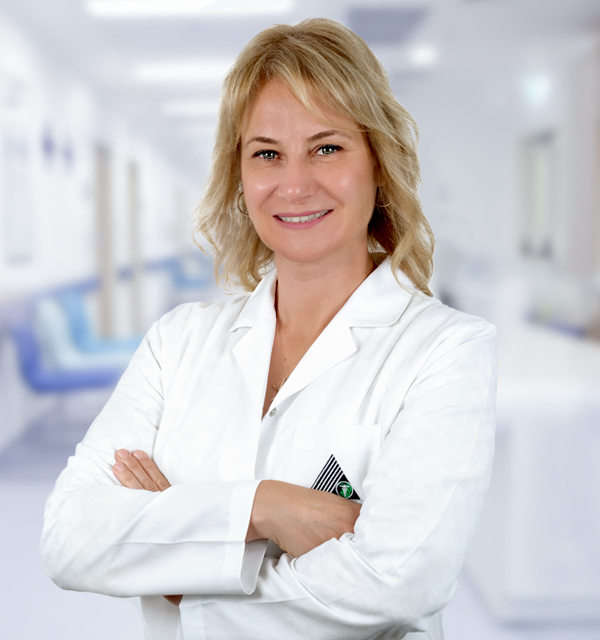Alo Yeditepe
Alo Yeditepe
Is Cancer a Treatable Disease?
Cancer is beginning to take its place among treatable diseases…
Due to both the loss of lives and the continuous advancements in diagnosis and treatment, cancer continues to be one of the main topics on the agenda. Medical Oncology Specialist Prof. Dr. Bala Başak Öven stated that despite all the advancements in treatment, negative lifestyle habits and insufficient attention to early diagnosis persist. Pointing out some issues on the occasion of Cancer Week, Prof. Dr. Öven emphasized that early diagnosis places certain types of cancer among treatable diseases, particularly.
Due to environmental factors, different living conditions, habits, and hormonal differences, there are variations in cancer types between men and women. Medical Oncology Specialist Prof. Dr. Bala Başak Öven from Yeditepe University Koşuyolu Hospital explained that the most common cancers in women are breast, lung, and colon cancer, while in men, they are prostate, lung, and colon cancer. She emphasized that due to the increasing use of tobacco, lung cancer is as common in women as it is in men.
Actions Taken, Whether Right or Wrong, Determine the Risk in Cancer!
While the exact cause of cancer is still unknown, a Medical Oncology Specialist emphasized the significant role of lifestyle-related mistakes, often defined as modifiable risk factors, in the development of cancer. Continuing, they stated: "We know that there are unchangeable risk factors such as gender in diseases like breast cancer, and advanced age in diseases like lung and prostate cancer. However, by regulating modifiable risk factors, we can prevent cancer. Quitting smoking is at the forefront of these measures. Healthy eating, increasing consumption of fruits and vegetables, reducing the intake of animal products, especially processed meats, exercising, and avoiding obesity are among the actions needed to reduce the risk of cancer."
Treatment should be tailored to the cancer patient, not just the cancer disease.
The Medical Oncology Specialist stated, "The most important elements of treatment vary according to the disease, its prevalence, the individual, and age." Continuing, they said, "In some early-detected cancers, surgery still plays a primary role. Alongside this, as oncologists, we participate in this multidisciplinary treatment approach during chemotherapy. It is possible to say that in recent years, especially in targeted therapies defined as immunotherapy and smart drugs, which are aimed at controlling the disease in metastatic cases, we have made groundbreaking advancements in oncology to reduce the risk of recurrence by administering adjuvant chemotherapy after surgery."
“Among treatable cancer diseases”
Our expert, who says that although cancer still costs lives, it is possible to consider cancer as a treatable disease today with early diagnosis, continued:“Nowadays, we can definitely consider cancer as a treatable disease. Of course, it is important to make an early diagnosis through screening methods. We know that if diseases such as breast cancer, colorectal cancer, cervical cancer, and even lung cancer are detected early through screening methods and treated, the mortality rates decrease.
It is possible to treat cancer while preserving the patient's quality of life
Medical Oncology Specialist explained that smart drugs and immunotherapy are effective in preserving the quality of life without compromising it like chemotherapy, extending both life expectancy and reducing hospital dependency. She said, "The purposes and goals of these three treatment methods are different from each other. Therefore, treatment methods vary for each disease and patient." Continuing, our expert added, "Chemotherapy is used as a maintenance treatment in metastatic disease or in patients who have undergone surgery and completed local treatment. In addition to this, immunotherapies, which are treatment methods that enhance the body's own immune system to fight cancer, are also among the treatment methods used. Especially for patients, the reduction in hospital dependency, particularly with orally administered types of smart drugs, is very important. Moreover, thanks to manageable side effects, the patient's quality of life is preserved, and thus, their psychological well-being can be maintained during treatment.”
Although immunotherapy has been used for many years, it is possible to say that it has been particularly on the agenda in the last 5 years. This is because it is used in all types of cancer. This treatment, which enhances the body's own immune system to fight cancer, is used in almost all types of cancer today. Moreover, its side effects are tolerable, such as flu-like symptoms or skin rashes."
There should be some signs that are alarming in cancer
Our expert pointed out that although screening methods exist for some types of cancer, there is no such opportunity for others, emphasizing the importance of certain signs observed in our bodies being alerting. Prof. Dr. Öven explained the following regarding the issue: "Screening methods have been shown to prolong survival in some cancers such as breast, colon, and lung cancer. For example, annual mammography after the age of 40 has reduced breast cancer-related mortality by 40%. However, there is no such screening for pancreatic cancer. In this case, it is important to be aware of symptoms. For instance, persistent coughs that do not go away despite treatment, unexplained weight loss, newly detected anemia, or palpable masses in the body should prompt immediate medical attention.”
Don't Hide the Cancer Diagnosis from the Patient
Our expert mentioned that especially in cancers that occur at more advanced ages, due to our societal structure, family members tend to try to hide the illness. However, he emphasized that this is not the correct approach. "In fact, on the contrary, when they do not have sufficient information about the disease, treatment, and possible side effects, they become more anxious about what they might experience. On the contrary, when patients are informed, they tolerate treatment and potential side effects much better. Because we know that motivation, such as regular sleep and stress management, is also important during treatment," she said.
“Eat According to the Season”
Yeditepe University Hospitals Medical Oncology Specialist emphasized the importance of a healthy lifestyle during treatment, stressing the need for cancer patients to pay particular attention to healthy eating habits, as every healthy individual should. She conveyed her warnings as follows: "Especially, cancer patients should avoid factors that may pose a risk, with smoking being at the forefront. We advise patients to avoid smoking, maintain regular sleep patterns, and consume at least 2-3 liters of water daily. Regarding healthy eating, meals should be consumed according to the season. For patients undergoing treatment, whose immune system may be lower, we recommend washing foods that may pose infection risks thoroughly with plenty of water, especially open-exposed ones. Additionally, it's important to avoid packaged and processed foods and consume fresh fruits and vegetables that are free of hormones."
We don't specifically say to patients "don't eat this, don't eat that," but we recommend that they consume foods high in protein content for wound healing and to boost the immune system. This includes legumes, eggs, meat, milk, and cheese in their meals. Additionally, paying attention to a diet rich in fiber is beneficial for both the digestive system and intestinal mucosa. However, it's not about providing a list or setting rules regarding specific foods they should or shouldn't eat.
Sugar Doesn't Feed Cancer, It Increases Weight!
Our expert addressed some of the most frequently asked questions and concerns from patients during treatment, stating: "One of the most common questions patients ask is about sugar consumption. It's important to clarify this issue. Sugar consumption does not feed the disease. However, excessive fat accumulation, particularly around the abdomen, which leads to weight gain, can pose a risk for certain types of cancer such as prostate, breast, and colon cancer. Therefore, it's important for patients not to gain weight. To prevent weight gain, it's necessary to reduce refined sugar consumption. "Will eating ice cream or chocolate trigger my illness?" Of course, consuming these foods individually does not trigger the disease. The important point is for the patient to have a balanced diet that meets their daily energy needs.”
About
Faculty and Year of Graduation:
İstanbul University, Cerrahpaşa Faculty of Medicine, 2000
”
See Also
- How Should Patients Receiving Chemotherapy Eat?
- What is Chemotherapy? How is it Applied?
- Nutrition in Cancer
- Cancer Treatment Methods
- Treatments that Reduce Life Loss in Cancer Give Hope!
- Do Individualized Treatments Offer Hope for Cancer?
- Cancer Statistics Reveal the Importance of Protecting Against Cancer
- New Research Points to the Important Issues in Breast Cancer
- Life Support Booklet for Oncology Patients
- False Facts in Cancer
- Lung Cancer
- Most Common Cancers
- Common Misconceptions About Cancer
- New Treatment Approaches Promising in Metastatic Breast Cancer
Alo Yeditepe





